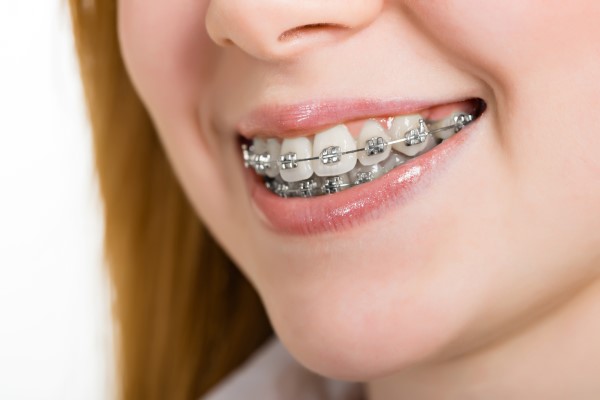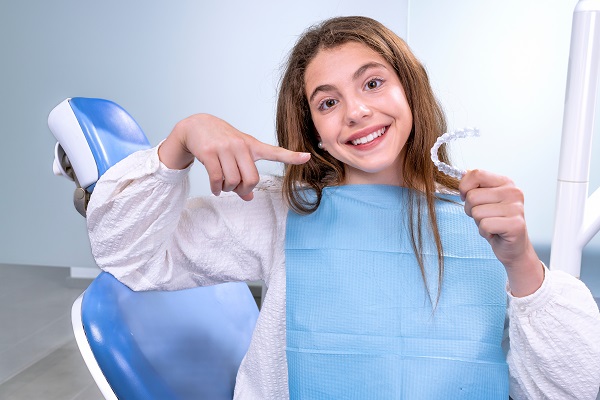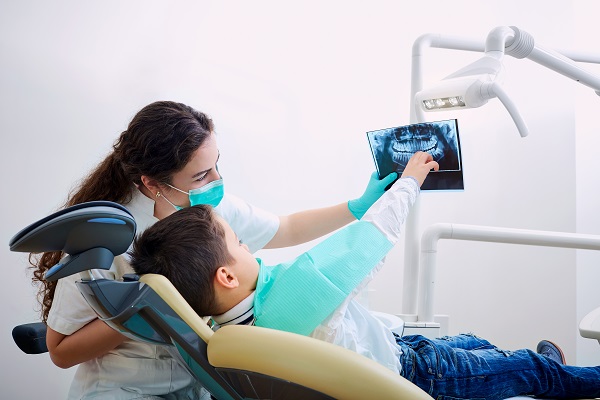When Would an Orthodontist Recommend Orthodontics for Teens?

Curious about orthodontics for teens? Continue reading to learn more about when this type of treatment is recommended for teens. An orthodontist might recommend orthodontics for teens when teeth alignment issues are detected. They often recommend bringing children in for their first orthodontic evaluation by the time they reach the age of seven. Orthodontic issues can be detected at this stage, and their severity often determines whether immediate treatment is required. Issues like overbites, crossbites, and underbites are typically addressed early on before the child reaches their teenage years.
Orthodontists often advise starting teeth alignment treatments around the ages of 12 to 16. Children typically experience their most significant growth spurts during this period, making it easier to reshape their mouths and jaws with orthodontics for teens.
Reasons an orthodontist might recommend orthodontics for teens
Here are some of the reasons why an orthodontist might recommend teeth straightening treatments for your teen:
1. Visibly crooked teeth
At times, it is obvious when a teenager needs teeth straightening treatments. Their teeth look may look crooked, and that leads to poor aesthetics. It can also lead to the teen becoming self-conscious since people at that age tend to be quite focused on their appearance. The teen might become reluctant to interact with others due to fears about being judged about their appearance. This can hinder their social development and carry over into their adult years.
2. Breathing problems or sleep apnea
A teenager having difficulty breathing during the day or while they sleep can be a sign of a problem with their bite. Breathing issues are often caused by a person’s airways being blocked. Sleep apnea is also caused by a person’s airways being obstructed, and it forces their brain to wake them up multiple times during sleep to restart breathing.
Airway obstructions can be caused by a person’s jaw being too narrow. This, in turn, leads to their teeth not coming out in their proper alignment due to not having enough space on the jaw. An easy way to determine if a child has airway obstruction is by observing if they breathe primarily with their mouth. Waking up with a sore throat, dry mouth, and snoring are signs that a child’s airway is obstructed during sleep, forcing them to breathe through their mouth. Improving the teenager’s bite often helps to alleviate these issues.
3. Sore gums and teeth
Frequently sore gums or teeth can signify excessive stress being placed on a person’s teeth and gums. It might result from a person’s teeth being too crowded due to not having enough space on the jaw. The soreness usually worsens when the wisdom teeth start to emerge, pushing on the person’s already crowded teeth.
Orthodontic treatment can be used to realign the teenager’s teeth, so all their teeth have enough space to grow properly.
Get your teen a straighter smile
Getting your child orthodontic treatments by their teenage years often leads to more effective treatments and shorter treatment times. Contact our dental office today to schedule a consultation with an orthodontist.
Request an appointment here: https://www.drsallysong.com or call The Orthodontic Center Of Wayne - Dr. Sally Song at (973) 696-5220 for an appointment in our Wayne office.
Check out what others are saying about our services on Yelp: Read our Yelp reviews.
Recent Posts
Even though braces are common among teenagers, getting them is a new orthodontic experience for every patient. Teens and their parents tend to have many questions about braces and other orthodontic treatments for teens, when to get braces, and what having braces will be like. Here are some of the most common questions orthodontists hear…
The primary goal of early orthodontic treatment is to prevent and fix bite misalignments. Several causes, including genetics, the premature loss of primary (baby) teeth, and harmful oral habits (like thumb sucking) may lead to such anomalies. Orthodontic abnormalities might be congenital or occur during early childhood. Straight teeth can reduce the incidence of dental…
Invisalign® has changed how willing teenagers –– and everyone else –– are to start teeth straightening treatments. It provides an alternative to traditional metal braces that is virtually impossible to detect. Invisalign® treatments work the same way conventional braces work, the aligner trays exert a force on the patient's teeth pushing their teeth into better…
Oral health is foundational to good overall health. Through the help of an orthodontist and bite correction, difficulties with chewing or speaking can be overcome. The inability to ingest food or clearly articulate impacts both physical and mental health. Bite correction has the potential to change the course of an individual’s health and wellness.Changes in…


